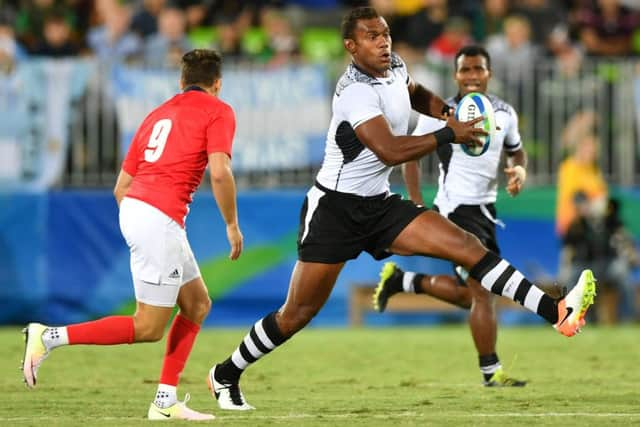Allan Massie: Olympics prove sevens is here to stay


The truth is, first, that Fiji, who had stuttered once or twice early in the tournament, were quite exceptionally brilliant in the final, and, second, that Britain had done remarkably well to get that far, had indeed exceeded all expectations. Beating South Africa in the semi-final took them to their limit, and perhaps beyond it. All their victories, except for their first match against Kenya, were by very narrow margins, triumphs of defensive organisation and character.
A neutral spectator might reasonably have wished that South Africa had won that semi-final, because they were better equipped than Britain to give Fiji a close match. As it was, both the final and the bronze medal game were very one-sided, with South Africa defeating Japan as comprehensively as Fiji beat Britain.
Advertisement
Hide AdAdvertisement
Hide AdThis was the only flaw or disappointment in what was a terrific tournament.
Sevens have surely arrived in the Olympics to stay, and the short form of the game is going to be the means of spreading rugby’s popularity worldwide.
Some are already suggesting that sevens represent the same sort of threat to the 15-a-side game as T20 does to Test cricket. It’s quick, it’s easier to understand. So its immediate attractions are obvious, just as T20s are. In neither sport is there yet a clean distinction between the two forms of the game, though some such distinction is already obvious. Fiji won Olympic gold; they didn’t reach the quarter-finals of the World Cup last year. The West Indies won the World T20 in the Spring; their Test team is lamentably poor. One difference is that most of the best Test cricketers play international T20 – the batsmen anyway, Virat Kohli, AB de Villiers, Joe Root and David Warner, for example; very few of the best All Blacks, Springboks, Wallabies, or Six Nations stars play Sevens. Mark Bennett was the only member of the British squad who played in the Rugby World Cup.
After Fiji, the big story of the Olympic sevens was the continuing rise of Japanese rugby. Having beaten South Africa in the World Cup, they beat the All Blacks in Rio, and came within a whisker of beating Britain, too. Admittedly the New Zealand seven is the All Blacks in name – and jerseys – only. Steven Hansen, the NZ coach, is said to take little interest in the sevens game and reportedly discouraged some of his flock from trying to go to Rio. Nevertheless, it’s pretty clear that Japan has a very bright future in both forms of the game. Nobody is going to take them lightly from now on.
There was some talk, especially from Sir Clive Woodward, about the need for physicality in sevens now. Certainly there were a good many tackles broken by hard running and there was some very vigorous counter-rucking on display. This isn’t actually that new. Those of us old enough to remember the great Kelso seven of the 1980s remember how the physicality of their forwards such as Eric Paxton, a great sevens specialist, ensured the supply of ball which allowed the sublime sevens skills of Andrew Ker and Roger Baird to flourish.
Possession matters in both forms of the game. In this context a significant law change some years ago contributed to making sevens a more even contest. This was the decision that the team which has just scored should restart the match, thus giving their opponents a chance to have a turn with the ball.
I remember, back in the late Sixties, a final at Netherdale between a talented and very athletic Loughborough College seven and Gala, in which the students, with a couple of English internationalists, had practically no possession at all in the second half. Gala scored a try. Loughborough kicked off. Gala, masterminded by Duncan Paterson at scrum-half, kept the ball till they scored again. Loughborough kicked off and so it went on, very exhilaratingly unless you were supporting Loughborough. Gala won by some 30 points in the days when a try was worth only three.
Well, it’s back to fifteens now – Selkirk are at home to Gala in the Border League this afternoon; but the success of Rio, on the back of the Scotland seven’s victory in the last round of the IRB’s World Sevens at Twickenham, will, I trust, convince the SRU that the sevens game here deserves more support. They may be turning their back on the future if they decide otherwise.